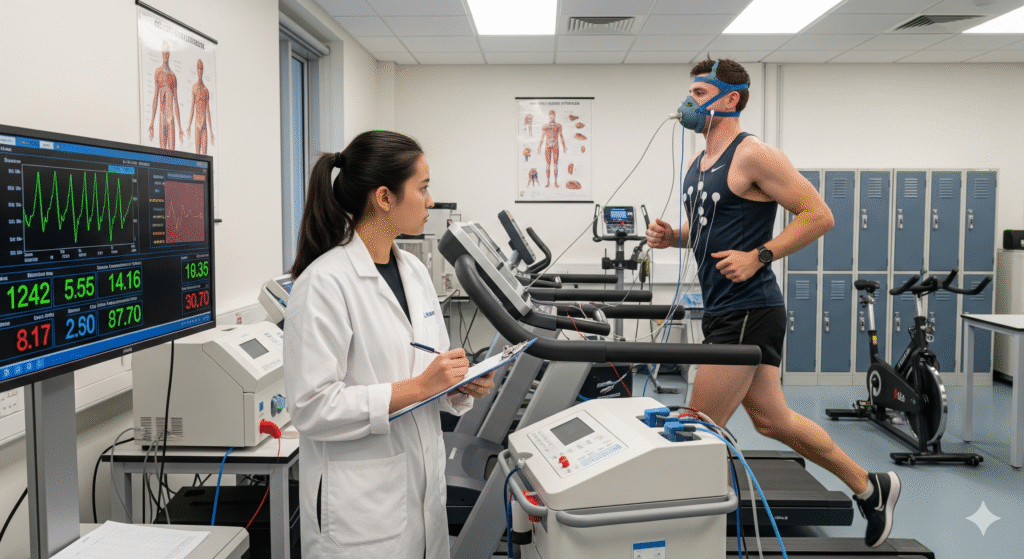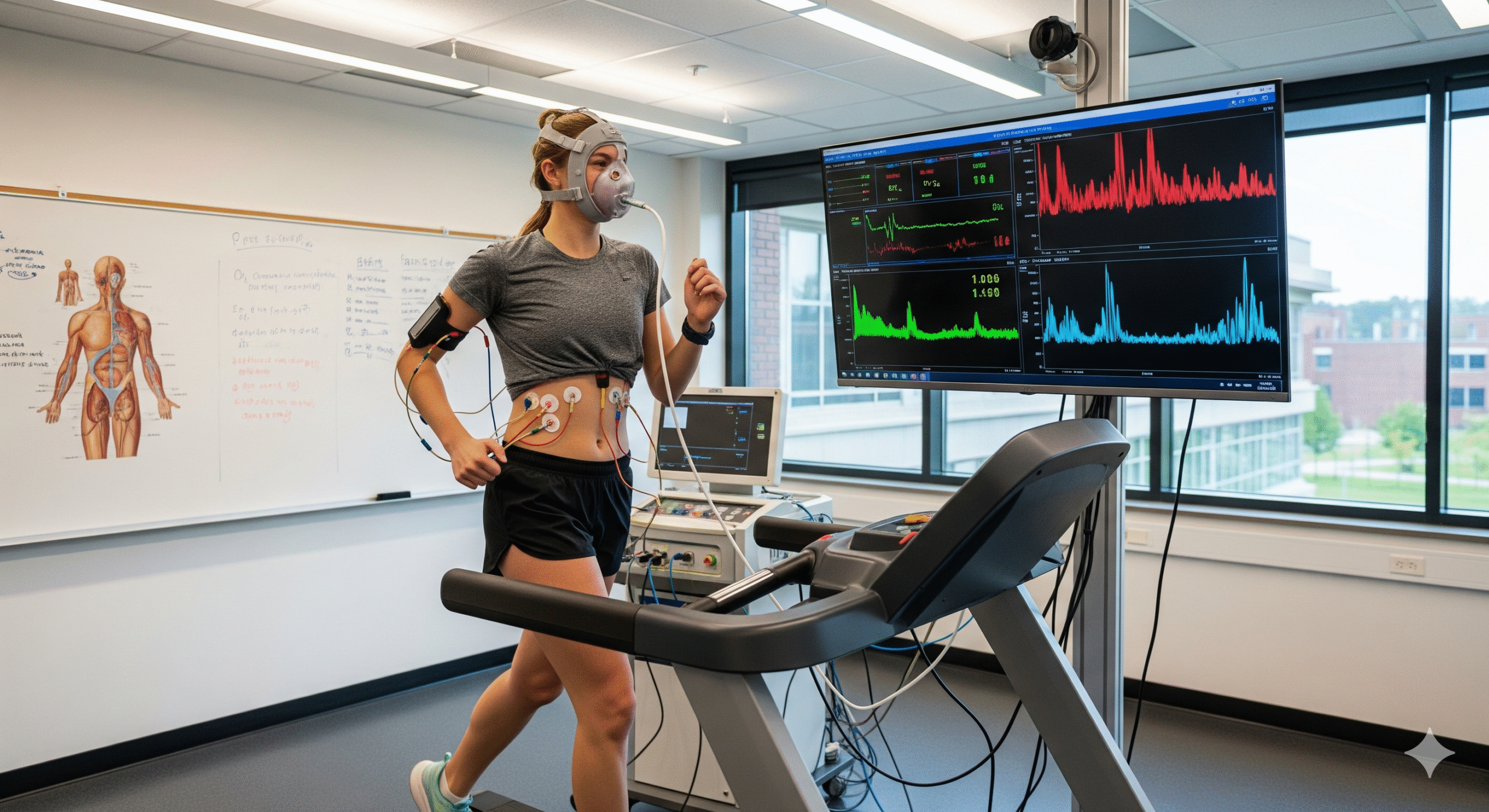Degree in Sports Science: Career Paths in Health & Fitness
If you’re passionate about fitness, human performance, and overall health, a degree in Sports Science could be the stepping stone to an exciting and rewarding career. Sports Science is not just about athletes or sports teams—it’s about understanding how the body works, how to improve physical performance, and how to help people live healthier, more active lives.
In today’s world, where fitness and wellness industries are booming, the demand for qualified sports science professionals has never been higher. From gyms and hospitals to elite sports organizations, graduates with a background in Sports Science can explore a variety of career opportunities.
In this guide, we’ll walk you through:
- What a degree in Sports Science involves
- Core skills you’ll gain
- The most popular career paths in health & fitness
- Industry trends and job outlook
- Tips for making the most of your degree
What Is Sports Science?
Sports Science is the study of how the human body functions during physical activity, exercise, and sport. It combines elements of:

- Physiology (how the body responds to exercise)
- Biomechanics (how movement works)
- Psychology (how the mind affects performance)
- Nutrition (fueling the body for health and performance)
The goal is to use scientific knowledge to improve performance, prevent injury, and promote long-term health.
Skills You Gain from a Sports Science Degree
A degree in Sports Science doesn’t just give you theoretical knowledge—it equips you with practical, in-demand skills such as:
- Analyzing physical performance and health data
- Designing effective training and nutrition programs
- Understanding sports injuries and rehabilitation methods
- Using technology and lab equipment to measure human performance
- Communicating complex ideas to clients, athletes, or patients
These skills are highly transferable, making Sports Science graduates valuable in healthcare, fitness, coaching, and wellness industries.
Career Paths in Health & Fitness with a Sports Science Degree
Here are some of the top career options you can pursue with a Sports Science background:
1. Exercise Physiologist
Exercise physiologists design and monitor exercise programs to help patients improve fitness, recover from injury, or manage chronic illnesses like diabetes and heart disease.
- Work settings: hospitals, rehabilitation clinics, corporate wellness programs.
- Average Salary (U.S.): \$50,000 – \$65,000/year.
- Growth Outlook: Increasing due to demand for preventive healthcare.
2. Sports Coach or Performance Analyst

If you love working directly with athletes, becoming a coach or analyst is a natural fit. You’ll help improve performance through training plans, data analysis, and mental preparation.
- Work settings: schools, colleges, professional sports teams, academies.
- Skills needed: leadership, analytical ability, motivation.
From Debt to Dumbbells: How Financial Freedom Can Improve Your Health in 2025
3. Physiotherapist or Rehabilitation Specialist
Sports injuries are common, and specialists in rehabilitation are in high demand. With further study or certification, Sports Science graduates can pursue physiotherapy, helping patients recover strength and mobility.
- Work settings: physiotherapy clinics, hospitals, sports teams.
- Strong link to healthcare and wellness sectors.
4. Nutritionist or Sports Dietitian
Diet plays a huge role in performance and recovery. With additional training in nutrition, you can guide athletes and everyday clients on how to fuel their bodies for success.
- Work settings: gyms, sports organizations, private practice.
- Popular specialization: sports nutrition for elite athletes.
5. Strength & Conditioning Coach
This career focuses on designing weight training, conditioning, and agility programs to maximize athletic performance and reduce injury risk.
- Work settings: gyms, professional sports teams, schools.
- Requires strong practical and motivational skills.
6. Occupational Health Specialist
Sports Science knowledge is also applied in workplaces. Specialists help employees reduce injuries, improve posture, and stay active—especially in industries with physical demands.
- Work settings: corporate offices, industrial companies, wellness consultancies.
7. Academic Researcher or Lecturer
For those who enjoy academia, there’s always the option to pursue advanced degrees (Master’s or PhD) and move into teaching or research roles in universities.
- Work focus: studying human performance, publishing research, training future professionals.
8. Fitness Entrepreneur or Consultant

With fitness trends booming, Sports Science graduates often start their own fitness studios, wellness apps, or consulting businesses. Knowledge of biomechanics and training makes them highly credible in the industry.
Job Outlook for Sports Science Graduates
The global fitness and wellness industry continues to expand rapidly. According to the U.S. Bureau of Labor Statistics (BLS):
- Employment of exercise physiologists is projected to grow by 9% between 2022 and 2032, faster than average.
- The global wellness economy is valued at \$5.6 trillion (Global Wellness Institute, 2024) and continues to grow.
- Careers in fitness technology and health data analysis are also rising due to digital health trends.
👉 External Resource: Bureau of Labor Statistics – Exercise Physiologists
Tips to Make the Most of Your Sports Science Degree
- Get Practical Experience – Internships at gyms, clinics, or sports teams give you real-world skills.
- Build Certifications – Specialize with certificates in nutrition, strength training, or personal training.
- Stay Updated – The fitness industry evolves quickly; follow the latest research and technology.
- Network Early – Attend industry events and connect with professionals for job opportunities.
- Consider Postgraduate Study – If you want to enter physiotherapy, nutrition, or academia, advanced degrees may be required.
Final Thoughts
A degree in Sports Science opens the door to a wide range of exciting and impactful careers in health, fitness, and wellness. Whether you want to train athletes, help patients recover, or launch your own fitness business, this degree equips you with the scientific knowledge and practical skills to succeed.
The world is shifting toward a stronger focus on preventive healthcare and fitness lifestyle choices—and Sports Science professionals will play a key role in shaping a healthier future.
If you’re passionate about movement, performance, and well-being, this could be the perfect path for you.
FAQs on Sports Science Careers
1. Do I need a Master’s degree to work in Sports Science?
Not always. Many entry-level roles only require a bachelor’s, but higher degrees are needed for physiotherapy, research, or advanced clinical positions.
2. Can Sports Science graduates work outside of sports?
Yes! Many work in corporate wellness, public health, and fitness technology industries.
3. Is Sports Science only for athletes?
No, it covers both elite athletes and the general population. Many professionals focus on helping everyday people stay active and healthy.
4. How much can I earn with a Sports Science degree?
Earnings vary by career, but on average in the U.S., roles range between \$45,000 – \$80,000 annually, with higher salaries in specialized fields.
5. What subjects are studied in Sports Science?
Expect courses in anatomy, physiology, biomechanics, psychology, nutrition, and exercise prescription.
